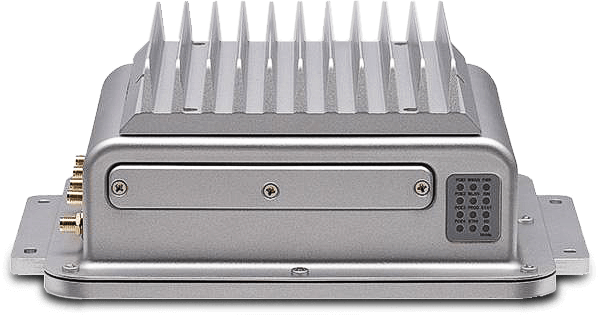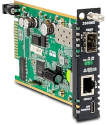Artificial Intelligence (AI) or AI is one of the indispensable key technologies in modern vehicle manufacturing and it requires powerful mobile embedded transportation PCs such as the ATC-3530 which combines three NVIDIA Dual Core CPUs as controllers with 384 Volta and 48 Tensor cores as co-processors to enable extremely fast computation of data-intensive algorithms with up to 21 TOPS or 6 TFOPS.

The ATC-3530 belongs to a new generation of embedded transportation PC with a discrete GPU based on NVIDIA Jetson Xavier NX solutions for computing and evaluating data from sensors through a learning AI environment. For the operating system and task distribution, the system uses three NVIDIA Carmel dual core CPU running at 1.90 GHz, accessing a total of 384 Volta cores and 48 Tensor cores clocked at 1.10 GHz as co-processors. The even and parallel distribution of computational load across the high number of subprocesses enables the ATC-3530 to perform AI computations within minimal time at an unusual energy efficiency, and to collect real-time metrics in system-critical situations that serve as the basis for decision-making. For memory, the Embedded AI Box PC uses 8 or 16 GB DDR4 RAM and 16 GB eMMC flash memory as the primary drive, and optionally an M.2 SSD for additional data and a MicroSD card as removable media for the user.
With its I/O and integrated sensors, the ATC-3530 is tailored for use in vehicles and offers optimal conditions for performing various tasks such as monitoring electronics, checking data integrity, reading out sensors and controlling assistance systems in cars and trucks, for example. The In-Vehicle PC offers CAN Bus 2.0 A/B, two Serial COM RS232 with additional interface for serial communication, double USB 3.2, OTG Micro USB, 8 bit GPIO and optionally four PoE+ or MIPI ports for displays or cameras. The connection as up- or downlink to further switches, external control devices or the internal network is done via Single or Dual
GbE LAN. In addition, the ATC-3530 fulfills all the necessary information for autonomous detection of the current location and situation through a U-blox NEO-M8N module for position determination via GPS, BAIDOU or Galileo, gyroscope and 3D accelerometer, among others.
For use in the sometimes extremely harsh conditions of mobile environments, the ATC-3530 uses a rugged design that, in addition to sealing the enclosure to IP67, also includes certification to MIL-STD-810G for tolerance to sustained or recurring vibration and spontaneous shock. The extremely wide temperature range for operation extends from -30° Celsius to 60° or 70° Celsius with relative humidity up to 95 percent, depending on the model. The typical task of the ATC-3530 is the central control or analysis of vehicle data, for example to provide assistance systems up to autonomous driving. Due to its high computing power and versatility, however, it is also used as an industrial embedded computer to coordinate extremely fast or complex processes with maximum reliability and precision, or to monitor the current situation in real time in system-critical environments and to intervene immediately in the event of potential deviations or dangers.

